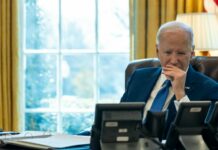There were a lot of moving parts that added complexity and diplomatic tension to Secretary of State Antony Blinken’s recent trip to Israel, and his meetings with Israeli and Palestinian leaders. There was also a lot of nuanced messaging. And behind the smiles, warm handshakes and public pronouncements of support, unity and shared values, he delivered some sobering messages.
In his meeting with Israeli Prime Minister Benjamin Netanyahu, Blinken made clear just how concerned the Biden administration is with the new government’s plan to overhaul the country’s judicial system. Although he couched his public comments in traditional diplomatic and respectful terms, Blinken urged Netanyahu to seek a wider consensus before moving forward with his coalition’s controversial plan. He leaned heavily on the shared, core democratic values that have been the foundation of the U.S.-Israel relationship for the past 75 years, including the rule of law and, by implication, an independent judiciary.
The comments were significant because it is rare that America weighs in on domestic legislation of its allies. While Netanyahu appeared to take the comments in stride, many in his coalition did not, with some coalition members and at least one minister critical of what they saw as efforts by Blinken to interfere in Israel’s internal matters.
Blinken’s diplomatic skills were further tested in his meeting with the aging and increasingly marginalized Palestinian president, Mahmoud Abbas, whose Palestinian Authority and security forces have been weakened over the past several years, including losing control in Jenin and its refugee camp, and a noticeable ebbing of control in Nablus as well. Both West Bank cities have seen increasing Israeli military raids with Israeli officials saying they are necessary since P.A. security forces aren’t doing their job. Blinken urged Abbas to accept and implement a U.S. security plan aimed at re-establishing P.A. control over the two Arab cities as part of an effort to de-escalate the mounting cycle of violence and the threat of a third intifada.
The U.S. security plan involves the training of Palestinian forces to counter the mounting influence of Islamic Jihad, Hamas and armed militias who have largely replaced P.A. security forces in Jenin and Nablus. But Abbas is said to have balked at the plan since it doesn’t include limitations on incursions by the Israel Defense Forces and doesn’t provide a mechanism to build support for the faltering P.A. and its security teams.
In remarks at the end of his visit, Blinken was relatively upbeat. He avoided confrontation with Netanyahu and his coalition over his democracy comments by saying that it is ultimately up to the Israeli people to work things out. And with respect to the Palestinians and related security and mounting violence concerns, he didn’t claim success but pointed to “some concrete ideas from both sides that, if pursued, would really help diffuse the current situation.” Blinken said that he has asked two of his senior State Department officers to stay in the region to help facilitate progress in defusing tensions and enhancing security cooperation between Israel and the P.A.
All in all, it proved an impressive diplomatic dance by Blinken. But, one wonders, to what tangible effect?






